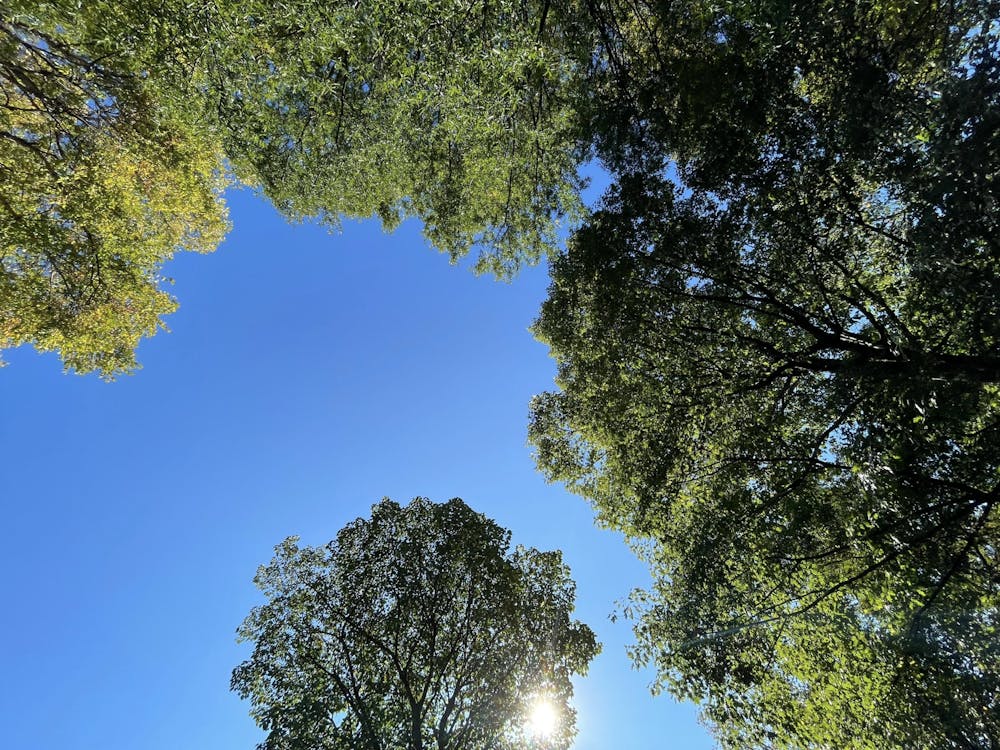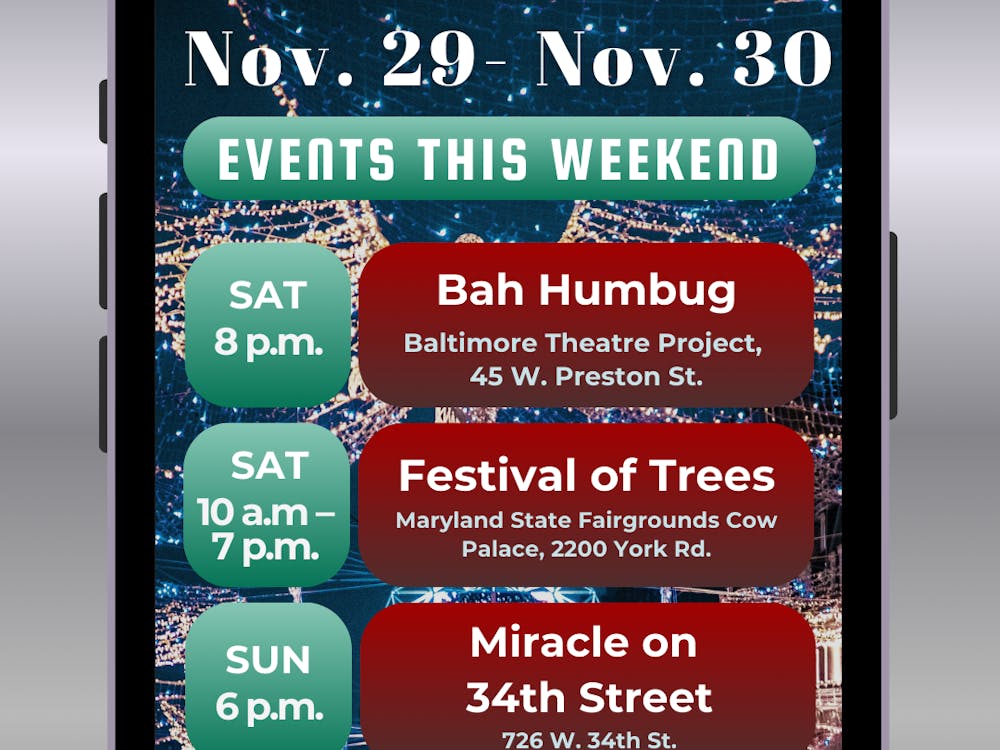If I were to tell you that one of the simplest ways to relax is to lie down, you'd probably roll your eyes, close this article and move on to the next thing on your endless to-do list. But let’s assume you’re still here, caught up in the constant churn of classes, meetings and assignments. And even during downtime — whether you’re watching Netflix, chatting with friends or even taking a bathroom break — there’s that grouchy, taxidermied tuna in the back of your head always asking: “What's next?”
What I propose is admittedly simple. Lying down — specifically outside — forces us into a state of relaxation. It’s not just the act of lying down that’s calming, but also how our perspective shifts. Suddenly, everything that seemed important starts to feel trivial. To explore this idea, my friend Lesley and I went skygazing on the Homewood Campus to see how different spots might affect our mindset and what the simple act of lying down could reveal. I have to give credit to Lesley for adding depth to this experiment with his wonderful insights.
First stop: A tree-framed sanctuary near the Bloomberg Center for Physics and Astronomy
Our first stop was a secluded spot along the paths leading to Bloomberg. Enveloped by trees, the sky above felt like a calm pond framed by a shifting green bank. Lesley and I agreed that looking up was liberating — free from objects that remind us of obligations or nagging tasks. It felt as though we’d stepped into an entirely different world. Contrails streaked across the sky which I imagined as living papercuts, while Lesley saw them as ripples trailing behind a boat, evoking the surreal sensation of gazing both upward and downward at once.
Second stop: The ocean above Keyser Quad
Next, we sprawled out on Keyser Quad. With fewer trees, the sky felt vast like an ocean. Birds, leaves, planes and even a rogue plastic bag floated across our view. A plane — when so high up — looked like a shard of metal glimmering at the bottom of a pool. We let our minds wander: What do clouds look like? What would they feel, taste, or even smell like? And, if clouds were a song, which one would they be? But as the clouds drifted out of sight, the sky turned into a barren stretch of blue, suddenly feeling more like a desert, and the drifting leaves became the tumbleweeds of the sky. My eye floaters became more noticeable. Lesley mentioned a friend who once likened them to tiny stars.
Third Stop: Undergraduate Teaching Laboratories’s (UTL) rigid architecture meets natural imagination
In front of the UTL, we found a patch of grass that offered another cozy spot to lie down. The view here was different — dominated by brick buildings. Lesley noted how rigid these buildings felt compared to the natural surroundings we’d experienced earlier. Yet, for a moment, we let our imaginations transform them into towering clay cliffs: a strange but oddly comforting shift in perspective.
After testing different places to lie down and observe the sky, I would say there is no "best" place. The sky changes so much in a given spot that it is just as worthwhile to stay in one place and wait for the sky to change for you.
So, why don’t more students take a break and lie down? It’s fair to admit that we might be embarrassed to be the only ones lying on the ground, looking silly or vulnerable. Lesley says lying down feels like a surrender — not only to gravity but to the act of relaxation itself. There’s also that pressure to “look” relaxed while lying down which feels counterproductive.
But after staring at the sky for a while, I felt as if I’d been floating underwater, immersed in a serene world of blue. On the day Lesley and I skywatched, the wind was especially strong, sending leaves tumbling around us. Even though I was lying down, I felt I could be knocked over, falling into the vast sky above.
And then, as always, the taxidermied tuna in my head asks, What’s next?
For the first time, I had a simple answer: I forgot.





